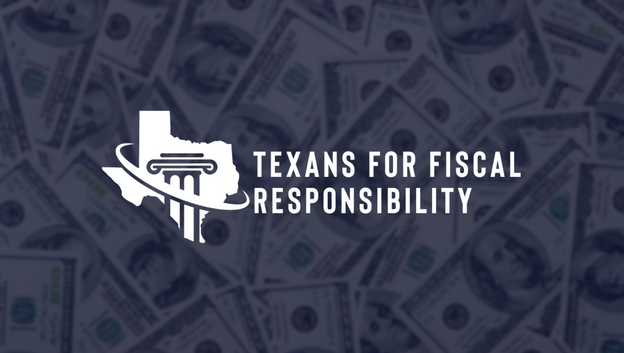
Much to the chagrin of fiscal conservatives, perhaps the most significant thing to come out of the 2022 midterm elections was the overwhelming success of many bond propositions and tax rate increases on the ballot.
In a country where we find ourselves more than $31 trillion in debt, reeling from near-record high inflation and ever-growing costs of living due to reckless government spending at the federal, state, and local levels, it seems voters continually choose to tie the proverbial noose around their own necks. Forgive the imagery.
Bonds and Property Tax Rate Increase
There were more than 150 different bond propositions on ballots all across Texas this Tuesday. Altogether, those propositions amounted to nearly $21 billion.
According to The Bond Buyer, Texas led the Southwest region of states having the largest amount of debt propositions on the November 8 ballot. Of the $21 billion considered, school bonds accounted for $15 billion of them.
Several local governments also had property tax rate voter approval elections. It is worth reminding folks that state lawmakers continued to gaslight Texas taxpayers, claiming these same local governments would do the right thing and adopt property tax rates equivalent to or below the no-new-revenue rate. In reality, very few local governments did, with nearly all of the largest local government jurisdictions choosing to propose much higher rates.
The same voters complaining about increased property tax burdens seemed to overwhelmingly support bond proposals and property tax hikes that will inevitably be paid for by increasing that same burden. This phenomenon is a complete contradiction, but perhaps it can best be explained by the disingenuous way the bonds are proposed altogether, lacking transparency and promoted by entities that would benefit from them by using taxpayer money in a way that those who oppose them cannot.
This is sadly not a new phenomenon, either. In May, we reported on conflicting messages all across the state regarding local bond propositions. In those elections, nearly $18.5 in bond proposals were considered; similarly, an overwhelming amount of them passed, even though many of the same voters simultaneously supported two statewide ballot propositions in the same election that purported to provide property tax relief. Either those voters do not understand how these bond obligations are financed (primarily through future property tax rate increase), or they do know and are ok with saddling future generations of Texans with that debt. Both scenarios are problematic, especially when you consider that many of the same local governments proposing these bonds are already flush with cash as a result of previous bond proposals, more-than-expected sales tax revenue, and funding from the federal government via legislative vehicles like the American Rescue Plan Act (ARPA).
Austin ISD proposed the largest bond package in the state of Texas, amounting to nearly $2.4 billion by itself. All three bond proposals passed overwhelmingly. Proposition A ($2.3B), which proposed bonded debt for school buildings, passed with 73% of Austin voters in support. Proposition B ($75.5M), which proposed bonded debt for technology system upgrades, passed with 72% of Austin voters in support. The final proposition in the bond package, Proposition C ($47.4M), proposed bonded debt for stadium facilities and upgrades and passed with 58% of Austin voters’ support. It is estimated that the average homeowner would see a tax increase of $55 per year due to this bond package alone. That amount does not include the other bond proposals Austin voters considered (which also passed), such as those for the Austin Community College and the City of Austin’s “Affordable Housing Bond.”
All 10 of Houston and Harris County bond proposals passed, amounting to nearly $1.7 billion.
Obviously, there are exceptions. Several bond propositions and voter-approval tax rate hikes were defeated, but those were ultimately few and far between compared to those that passed around the state.
Notably, Fort Bend ISD’s voter-approval tax rate election was unsuccessful, albeit close. Seguin ISD saw only one of their bond proposals pass related to $131 million for facility upgrades. The other proposal seeking bonded debt for a new sports complex failed. Dripping Springs ISD saw all three of its bond proposals (amounting to nearly $500 million) fail.
Ballot Proposition Transparency and Rules
Many taxpayers have taken issue with what is perceived as a deck stacked against them. Taxing entities proposing bonds and tax rate hikes can use taxpayer money to promote them, something that is not afforded to taxpayers themselves, who may instead choose to promote opposition to the same bond or tax rate election.
Many local governments often use confusing language to promote these things as well, saying they are lowering rates while being silent about how the increase in appraisals for various properties in the district will actually result in a tax increase for property owners. This practice is absolutely something the Texas Legislature should rectify before more local governments continue to abuse such things.
Texas Republican State Rep. Steve Toth (The Woodlands) recently took to Facebook to express his opposition to similar practices related to the school board in Conroe, Texas.
With regard to transparency, the Texas Government Code does require local government jurisdictions to include a Voter Information Document (VID) that lists specific information related to the bond, such as the current outstanding debt for that local government entity as well as the estimated interest approved with the bond itself. Many local government jurisdictions, however, played loose with what constitutes “enough” information related to the estimated tax increase that would be imposed on a homestead, based on appraisal values disconnected from the actual values of those homesteads.
Texas’ Growing Local Debt Burdens
Sadly, Texas local governments boast an insane amount of bonded debt. This reality is likely the motivation for the chairman of the Republican Party of Texas, Matt Rinaldi, to take to Twitter to say this in the days leading up to the election:
Don’t forget to get out and vote “No” on the bond . . . wherever you are . . . and whatever bond that might be.
— Matt Rinaldi (@MattRinaldiTX) October 24, 2022
Similarly, the 2022 Texas GOP platform includes planks related to bonds as well, charging elected Republicans to support:
Plank 92. Bonds Create Bondage: We urge the Texas Legislature to amend the Texas Election Code to require bond issues be approved by a ⅔ majority of those voting and only if 20% of all registered voters in the district cast ballots. Taxpayer standing must be established to allow taxpayers to hold government entities accountable.
That same platform continues:
Plank 239. Bond Elections: State and local bond election ballots shall be required to include the amount of debt currently outstanding, current debt service payments, current per capita debt obligations, the amount of new debt being proposed, estimated debt service for the new debt, and estimated per capita burden being proposed. The bond issue must obtain ⅔ affirmative vote of at least 20% of registered voters in the voting jurisdiction. No public funds are to be spent influencing a bond election. We oppose bundling of items on bond election ballots and “rolling polling” for bond and tax rate increase elections.
In the Background: Inflation, Increased Costs of Living, Existing Debt Burdens, and an Impending Legislative Session
As debt is continually approved, it is important to understand that it piles onto the already existing debt burdens seen in jurisdictions all across the state.
All of this is also happening against the backdrop of a 40-year-high inflation, increasing the costs of almost all goods and services. Of course, this does not even take into consideration the over $31 trillion of debt accumulated by the federal government with recent record spending under both Republican and Democratic administrations.
The Texas Legislature is set to convene in January of 2023. They have an opportunity to rectify many of the aforementioned issues, as well as provide actual property tax relief for Texas taxpayers while simultaneously putting the state on a path to the elimination of the immoral property tax.
Eventually, someone has to pay those bills; shamefully, it looks more and more like it will be future generations of Texans.




